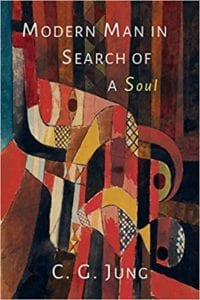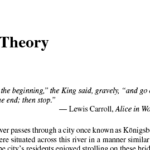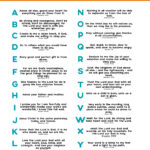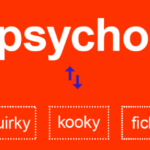Where To Start With Carl Jung
1. Begin by familiarizing yourself with Carl Jung’s life and background, including his early experiences, education, and influential figures in his life.
2. Explore the concept of the unconscious mind, which is a central aspect of Jung’s theories. Learn about the different layers of the unconscious, such as the personal and collective unconscious.
3. Familiarize yourself with Jung’s theory of archetypes, which are universal symbols and motifs that exist in the collective unconscious. Study different archetypes and their significance in human psychology and mythology.
4. Read about the concept of individuation, which is the process of integrating different parts of the self to achieve wholeness and self-realization. Understand the stages and challenges involved in this process.
5. Study Jung’s theory of psychological types, particularly the distinction between introversion and extraversion, and the functions of thinking, feeling, sensation, and intuition.
6. Read about Jung’s views on dreams and their interpretation. Understand how dreams can function as a doorway to the unconscious and provide insights into an individual’s psyche.
7. Explore the concept of synchronicity, which refers to meaningful coincidences that cannot be explained by cause and effect. Learn how Jung believed synchronicity can provide guidance and meaning.
8. Delve into Jung’s exploration of the shadow, which represents the darker, repressed aspects of an individual’s personality. Understand the importance of acknowledging and integrating the shadow for psychological growth.
9. Learn about Jung’s concept of the anima and animus, which represent the feminine and masculine aspects within an individual, respectively. Understand how these inner opposites influence our interactions and relationships.
10. Study Jung’s understanding of religion and spirituality, including his views on the psychological significance of religious symbols and rituals. Explore the concept of the transcendent function.
11. Read about Jung’s insights on the process of alchemy and its symbolic parallels with psychological transformation. Understand the importance of metaphorical language and symbols in personal development.
12. Familiarize yourself with Jung’s theories on the collective unconscious, which encompasses shared symbols and motifs that are present in all cultures throughout history. Study the role of mythology and fairy tales in accessing the collective unconscious.
13. Explore the concept of the persona, which represents the social mask or persona that an individual presents to the world. Understand how this construct can shape behavior and impact personal authenticity.
14. Study Jung’s views on creativity and the importance of the creative process for psychological growth. Learn about the role of art, music, and other forms of expression in individuation.
15. Read about Jung’s theory on the process of aging and its psychological implications. Understand how the integration of different life stages contributes to a well-rounded sense of self.
16. Explore Jung’s views on the role of sexuality and the connection between sexuality and spirituality. Understand his theories on the symbolism and significance of sexual energy.
17. Study Jung’s perspective on psychological disorders, particularly his concept of complexes and their impact on an individual’s psychological well-being. Read about his approach to therapy and techniques he employed.
18. Familiarize yourself with Jung’s relationship with Sigmund Freud and their eventual split due to ideological differences. Understand the impact of this split on Jung’s subsequent work and theories.
19. Explore the ways in which Jung’s theories have influenced fields beyond psychology, such as literature, art, philosophy, and spirituality. Read about prominent individuals who have drawn from Jungian ideas.
20. Study the process of active imagination, which involves engaging with the contents of the unconscious through creative visualization and dialogue. Understand its purpose and potential benefits.
21. Read about Jung’s views on the process of death and dying, including the concept of the psychopomp and his exploration of the afterlife.
22. Explore the ways in which Jung’s theories have been critiqued and challenged by other psychologists and scholars. Gain a comprehensive understanding of the ongoing debates surrounding Jung’s ideas.
23. Study Jung’s concepts of introverted and extraverted thinking, feeling, sensation, and intuition in depth. Understand the characteristics and functions of each type.
24. Examine the concept of the anima/animus development and its impact on personal relationships. Understand how the integration of these masculine and feminine aspects can cultivate healthier connections.
25. Read about Jung’s exploration of Eastern philosophy and religions, including his interest in Buddhism, Taoism, and Yoga. Understand his synthesis of these ideas with Western psychology.
26. Study Jung’s ideas on the process of individuation as seen through the lens of fairy tales. Explore the symbolic nature of common fairy tale motifs and the themes they represent.
27. Read about Jung’s understanding of the psyche as a complex, multifaceted structure. Explore how different archetypes and psychic energies interact within the psyche.
28. Familiarize yourself with Jung’s perspectives on the role of the ego in the psyche and its relationship with the unconscious. Understand how the ego can mediate between different psychic elements.
29. Study Jung’s ideas on the nature of evil and the impact of the collective unconscious in shaping destructive behavior. Explore the concept of the “shadow self” and its connection to unethical actions.
30. Read about Jung’s theories on the importance of a balanced life, including the integration of work, personal relationships, and creative expression. Understand how these aspects contribute to overall psychological well-being.
More About Where To Start With Carl Jung
Welcome to my blog, where we delve into the fascinating world of Carl Jung and his groundbreaking theories on psychology and the human psyche. If you are new to the works of this renowned Swiss psychiatrist and want to delve into his ideas, you have come to the right place. In this introductory article, we will explore where to start with Carl Jung and embark on a journey of self-discovery and inner exploration.
Carl Gustav Jung, born in 1875, was a revolutionary thinker who challenged the prevailing theories of his time. He established his own school of psychology, known as analytical psychology, which delves into the depths of the unconscious mind. Jung believed that the human psyche is a complex and multifaceted entity, comprising various layers that interact with one another to shape our thoughts, emotions, and behaviors.
To understand Jung’s work, it is essential to familiarize yourself with his foundational concepts. One such concept is the collective unconscious, a reservoir of inherited and universal symbols and archetypes that are shared by all human beings. These archetypes are innate and represent common patterns of behavior and experience that reside in our subconscious. By accessing and understanding these archetypes, we can gain insight into our deep-rooted motivations and why we behave the way we do.
Another crucial notion in Jungian psychology is the concept of individuation. Individuation is the lifelong process of self-realization and integration of our conscious and unconscious aspects. It involves uncovering and reconciling the opposing forces within ourselves, such as the masculine and feminine aspects (anima and animus), and achieving a sense of wholeness and balance.
To begin your exploration of Carl Jung’s work, a great starting point is his seminal book, “Man and His Symbols.” Published shortly before his death in 1961, this accessible and beautifully illustrated volume provides an excellent introduction to his theories. Co-authored with other Jungian analysts, “Man and His Symbols” aims to make Jung’s ideas more comprehensible to mainstream audiences. It explores the significance of symbols in our dreams, art, and daily life, and how they offer profound insights into the unconscious.
Another essential work by Jung is “The Red Book.” This deeply personal and introspective book was not published during his lifetime but offers a precious glimpse into his own psychological journey. Described as Jung’s “confrontation with the unconscious,” it contains vividly illustrated pages filled with his dreams, visions, and dialogues with his inner demons and archetypes. Although it may be a more challenging read, “The Red Book” offers a profound exploration of Jung’s own inner world and can provide valuable inspiration for your own exploratory journey.
Exploring the concepts and theories of Carl Jung can be a transformative experience that opens up a whole new perspective on yourself and the world around you. However, it is important to approach his work with an open mind and a willingness to delve deeply into your own psyche. It is not a quick-fix solution or a mere intellectual exercise but a transformative process that requires introspection, reflection, and personal growth.
In the upcoming articles here, we will further explore various aspects of Carl Jung’s work, ranging from dream analysis and symbolism to the role of the shadow, and his influential concepts of extroversion and introversion. Together, we will unravel the profound wisdom and insights offered by this visionary psychologist, with the aim of enhancing self-awareness, personal growth, and a deeper understanding of our own human nature.
So, let us embark on this journey together and delve into the depths of Carl Jung’s psychological theories to uncover the hidden treasures of our own psyche. Join me on this transformative exploration, and may your understanding of yourself and the world around you be forever enriched by the profound wisdom of Carl Jung.
Where To Start With Carl Jung FAQs:
FAQ: A Beginner’s Guide to Carl Jung
Q1: Who is Carl Jung?
A1: Carl Jung (1875-1961) was a Swiss psychiatrist and psychoanalyst who became one of the most influential figures in the field of psychology. He is best known for his theory of the collective unconscious, archetypes, and his exploration of the human psyche.
Q2: What is the collective unconscious?
A2: According to Jung, the collective unconscious is a part of the mind that contains archetypes or universal patterns of behavior and symbolism shared by all humanity, inherited from our ancestors.
Q3: What are archetypes?
A3: Archetypes are universal symbols or psychological motifs that appear in myths, dreams, and art across different cultures and times. Examples of archetypes include the mother, the trickster, the hero, and the wise old man.
Q4: What is Jungian analysis?
A4: Jungian analysis is a form of psychotherapy developed by Carl Jung. It involves exploring the conscious and unconscious elements of a person’s psyche, including dreams, fantasies, and personal symbolism, to gain insight into their psychological development and explore their deepest self.
Q5: What is the concept of individuation in Jungian psychology?
A5: Individuation refers to the process of integrating and reconciling both the conscious and unconscious aspects of one’s personality. It is a transformative journey towards self-realization and living an authentic life.
Q6: How can I start learning about Carl Jung’s ideas?
A6: A great starting point is reading Jung’s book “Man and His Symbols,” which provides a comprehensive introduction to his theories, written in a more accessible manner. The book offers a glimpse into Jungian concepts and is perfect for beginners.
Q7: Are there any other recommended books about Jung’s ideas?
A7: Yes! Other notable works include “The Archetypes and the Collective Unconscious,” “Psychological Types,” and “Memories, Dreams, Reflections.” These books delve deeper into Jung’s theories and autobiographical accounts, offering richer insights.
Q8: What are some practical ways to apply Jungian concepts in daily life?
A8: Jungian concepts can be applied in various ways. Exploring dream symbolism, practicing active imagination, engaging in creative expression, and exploring your unconscious patterns and emotions are some practical methods that can help you gain self-awareness and personal growth.
Q9: Is it necessary to have professional training to understand Jungian psychology?
A9: While professional training can provide an in-depth understanding, it is not necessary to capture the essence of Jung’s ideas. Many introductory books, online resources, and self-reflection exercises can help you grasp the basic concepts and apply them to your life.
Q10: Can I incorporate Jung’s ideas into other fields like art, literature, or spirituality?
A10: Absolutely! Jung’s theories have been widely embraced in various fields, including art, literature, religion, and spirituality. Many artists, writers, and spiritual seekers draw inspiration from Jung’s concepts, finding them valuable for self-expression, symbolism, and personal growth.





















